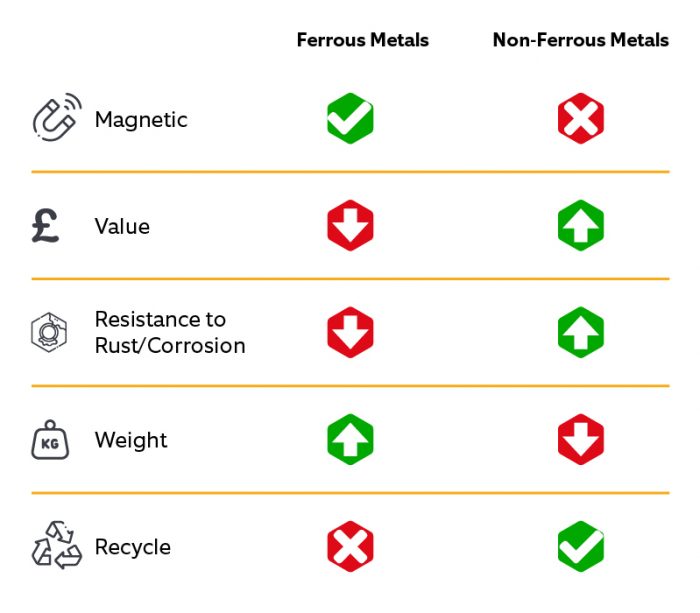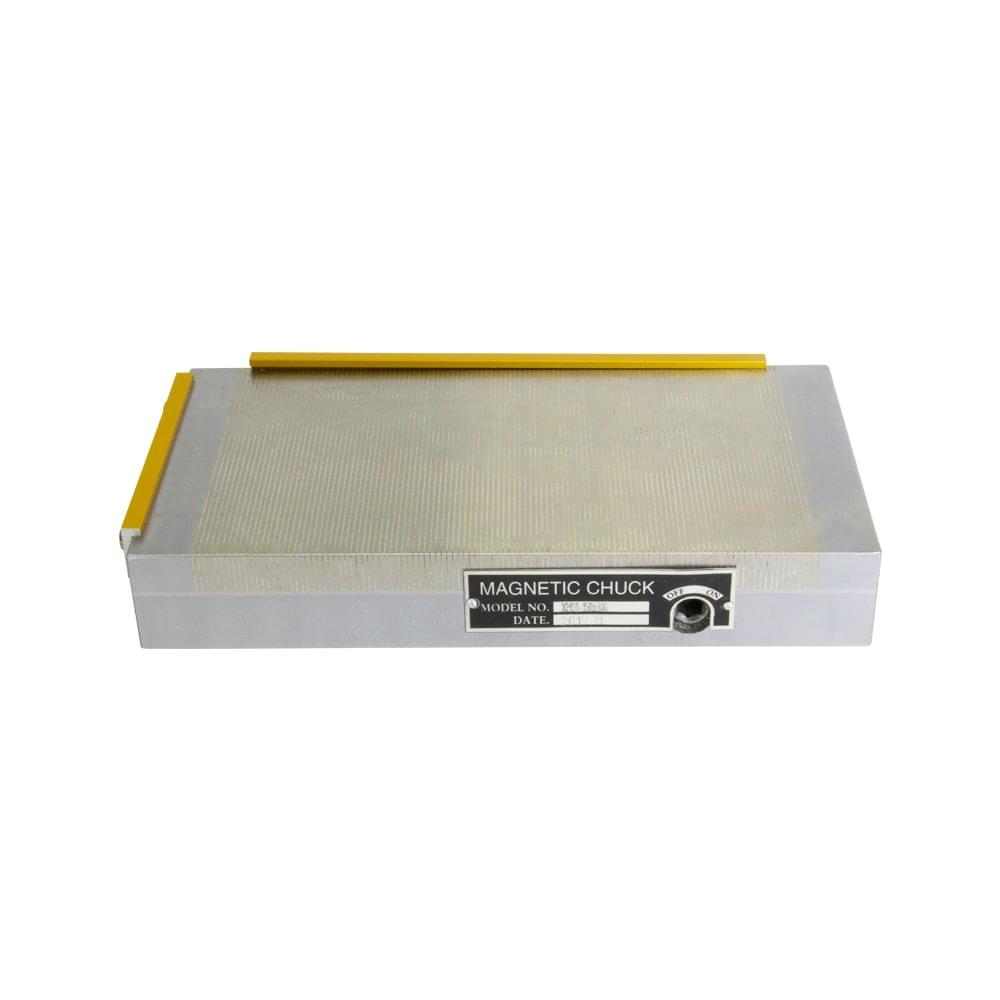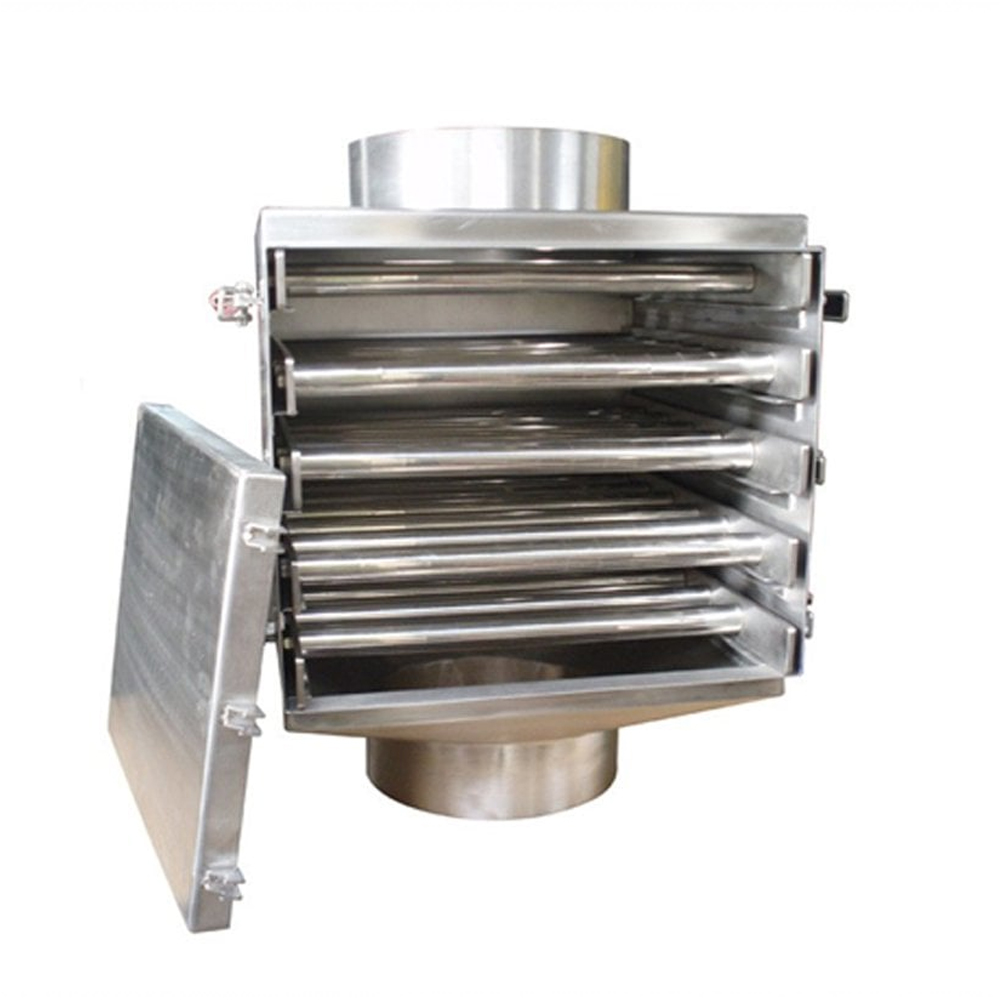When talking about magnets it is extremely important to be aware of the two main categories of metals that exist: ferrous and non-ferrous metals. A simple fact that splits these metals is that ferrous metals contain iron and non-ferrous metals do not.
However, it is more complicated than that as ferrous and non-ferrous metals have several different properties and because of these properties, they are better suited for certain applications.
Take a look at the simplified differences between ferrous and non-ferrous metals:

Ferrous Metals
What is Ferrous Metal?
Ferrous metals refer to any metal-containing iron, this iron content makes ferrous metals magnetic, hard, and strong. This is why ferrous metals are commonly used for industrial containers, large-scale piping, building houses, and numerous engineering and construction applications.
As well as containing iron ferrous metals contain a high amount of carbon, which does make them prone to rusting when exposed to moisture. However, stainless steel with its high chromium content and wrought iron containing high levels of pure iron are exceptions.
Types of Ferrous Metals:
Stainless Steel
Made from 100% recyclable materials with a high amount of chromium making it more resistant to corrosion than carbon steel. Stainless steel is often used to make knives, medical equipment, food-grade equipment, appliances and pharmaceuticals.
Carbon Steel
Carbon steel is one of the most popular and common ferrous metals with over 90% iron content and is commonly used within structures and furniture.
Engineering Steel
Typically, iron can be made stronger, ductile, and more durable through the process of adding copper, tungsten, manganese and vanadium. Engineering steel is often used for construction and machining equipment.
Cast Iron
This ferrous metal contains more carbon than most other types, due to the lack of any other alloying elements besides iron and carbon, cast iron is very affordable. Cast iron is used commonly in the manufacturing of cookware, rods, pins and gears that are subject to wear.
Wrought Iron
Wrought iron has a much lower carbon content when compared to cast iron but has a high degree of elasticity and tensile strength and is soft, magnetic and ductile.
Wrought iron can be heated and reheated and shaped to a variety of shapes and unlike most other ferrous metals resists corrosion and oxidation. This is why outdoor stairs, fences, gates, nuts and bolts are made from this material.
Non-Ferrous Metals
What is Non-Ferrous Metal?
Non-Ferrous metal is a term that refers to metals that do not contain iron, unlike ferrous metals, these materials are lighter and malleable meaning they are often used in applications where strength must meet weight restrictions.
Additionally, as these metals contain no iron it makes them more resistant to corrosion and rust making them very suitable for piping, roofing, outdoor signs and guttering. Also, as they are non-magnetic, they are crucial for electronic and wiring applications.
Types of Non-Ferrous Metals:
Lead
Heavy, soft and malleable metal with a low melting point and a low overall strength.
Zinc
Medium strength with a low melting point and is most commonly used in galvanising to prevent rusting of steel and iron.
Copper
A highly malleable metal that is electrically conductive.
Tin
Tin is soft, malleable and has low tensile strength, and is most commonly used to prevent corrosion on steel.
Aluminium
A light, strong and easy to shape metal used in multiple applications.
Aluminium Alloys
A chemical composition in which elements are added to pure aluminium to improve its properties, commonly to make it stronger.
Contact Magnet Expert Today
At Magnet Expert, we welcome any enquiry about magnets, their applications and your custom magnet needs. If you have questions regarding our magnetic assemblies or systems, technical information and advice, or you simply want to place an order please call 0845 519 4701 or fax us on 0870 838 1233.
If you prefer to send us an e-mail directly, please feel free by emailing us at sales@magnetexpert.com.
Our business hours: Monday to Friday 8.00 am to 5.30 pm.


